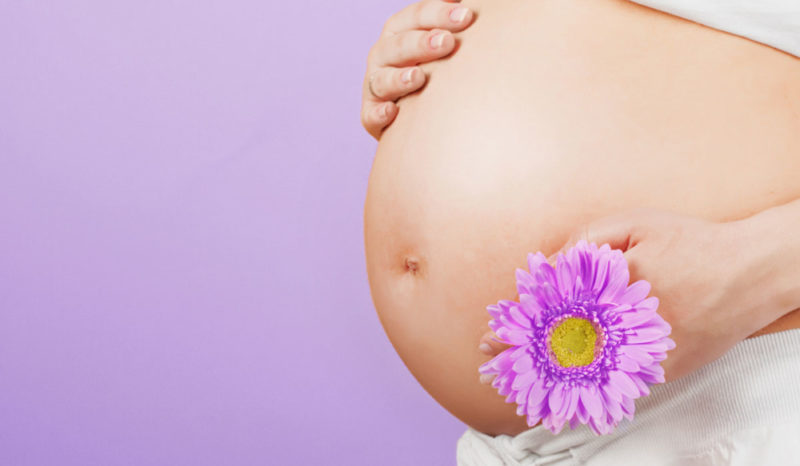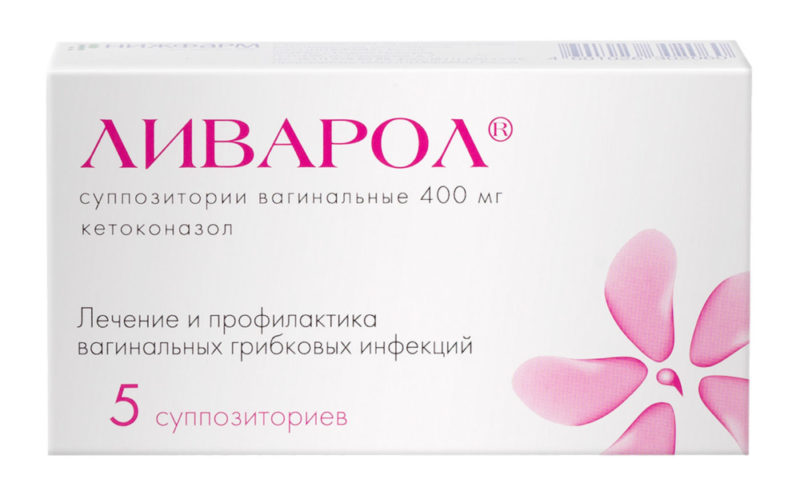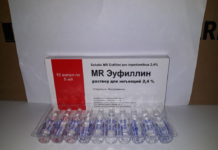Thrush during pregnancy is a common phenomenon. This harmless, at first glance, the disease can cause significant discomfort to the expectant mother, complicate childbirth and even harm the baby. Read about how to prevent candidiasis during pregnancy and avoid its negative consequences.
Material Content:
Causes of thrush in pregnant women
The reason for the development of thrush is the active reproduction of fungi of the genus Candida, which are part of the healthy microflora of the vagina. During normal body function, their numbers are controlled by beneficial lactobacilli. Under the influence of certain factors, beneficial microorganisms can die, allowing yeast-like fungi to divide intensely. Also, vaginal candidiasis can develop when candida enters the vagina from the outside.
Factors contributing to the development of fungal infection during pregnancy include:
- hormonal instability (especially in the early stages);
- inhibition of natural immunity under the influence of the "pregnancy hormone" progesterone;
- allergic reactions to intimate hygiene products, condoms, lubricants;
- infectious diseases;
- abuse of sweets and flour;
- prolonged use of antibacterial drugs;
- insufficient or excessive hygiene;
- hypothermia;
- access to the sauna, pool, open pond.
- existing intestinal dysbiosis.
The occurrence of thrush is promoted by both prolonged stresses and experiences, which are often observed in pregnant women.
Symptoms of candidiasis
In very rare cases, the disease may not cause discomfort in a woman.
However, the following symptoms of thrush are most often observed:
- curdled or creamy viscous discharge of white or yellowish color with a characteristic "yeast" smell;
- redness of the external genitalia (sometimes a white coating may be observed on them);
- itching, often worse in the dark;
- burning and irritation in the vagina and external genitalia;
- pain during urination and sexual intercourse.
Discharge with thrush should not be confused with the usual leucorrhoea, which is observed in most healthy women. Leucorrhoea, unlike candida, has a liquid consistency, a uniform white color and is not accompanied by unpleasant sensations.
Diagnostic measures
In conditions of a female consultation, the diagnosis of thrush in pregnant women, as a rule, comes down to a visual examination of the vagina in the mirrors, a survey of the patient and a microscopic analysis of the discharge taken from the vagina and the cervical canal.
With a thrush during a gynecological examination on the walls of the vagina and cervix, a white curd coating, redness and swelling of the tissues are observed. Microscopic analysis of the sample will show the growth of fungal microflora.
Additionally, the following types of diagnostics can be used:
- bacteriological culture of the taken material on a nutrient medium in order to determine the variety of the fungus and its resistance to certain drugs;
- colposcopy - a method for studying the vagina and cervix using an optical colposcope device that allows you to examine genital tissue under magnification;
- blood tests and genital secretions for sexually transmitted diseases in order to determine hidden infections.
In case of chronic vaginal candidiasis with frequent relapses (more than 4 times a year), the patient may be prescribed a consultation by a urologist, gastroenterologist and some other specialized specialists.
Treatment of thrush in pregnant women 1, 2 and 3 trimesters
Treatment of thrush in pregnant women sometimes causes difficulties, because many effective antifungal drugs are not recommended or even contraindicated throughout the term. The use of medicines until 12 weeks of gestation is especially undesirable, since at this stage the placenta has not yet formed, a kind of filter for substances entering the fetus.
- At any stage of pregnancy, for a competent specialist, local treatment, which implies the use of intravaginal dosage forms, will be a priority. The action of these funds will be aimed at inhibiting the growth of the fungus (antifungal drugs) and the restoration of the natural vaginal flora (products containing lactobacilli).
- When the cause of thrush is intestinal dysbiosis, a pregnant patient will be prescribed a course of pro- or prebiotics that will not harm the fetus.
- Also, with thrush during the period of carrying the baby, an appropriate diet is important. Specialists in this case recommend excluding spicy, sweet and starchy foods from the diet.
What medications are better
The choice of a specific drug will depend on the gestational age.
Most often, gynecologists prescribe the following vaginal tablets and suppositories from thrush during pregnancy:
- Zalain, suppository;
- "Livarol", suppositories (allowed only from the 2nd trimester, with caution);
- "Irunin", vaginal tablets (use with caution is allowed from the 2nd trimester);
- Pimafucin, suppositories.
In this case, antifungal agents in the form of creams and gels, as well as suppositories with lactobacilli, can be prescribed.
Important! Therapy of vaginal candidiasis in pregnant women should be done exclusively by a gynecologist. Self-medication can cause significant harm to both the mother and the unborn baby.
Folk remedies
With the permission of the doctor conducting the pregnancy, you can use traditional medicine methods.
The following methods of treatment of candidiasis can be used for expectant mothers:
- Washing with soda solution. Known to everyone, baking soda creates an alkaline environment, unsuitable for yeast-like fungi. 30 g of soda are dissolved in 1 liter of boiled water and the genitals are rinsed with the resulting solution twice a day. For greater effectiveness, 3 drops of 5% iodine solution are added to the product.
- Washing with infusion of medicinal herbs. In equal parts, mix birch buds, juniper fruits, celandine grass, calendula flowers, oak bark and birch buds. Pour a tablespoon of the mixture with 500 ml of boiling water and insist for 5 hours. Wash the genitals with the infusion obtained 1 time per day after hygienic treatment. This tool has anti-inflammatory and mild antifungal effects.
- Baths with a camomile. 40 g of dried chamomile pharmacy flowers pour a glass of boiling water and insist for an hour. Strain the resulting infusion and mix with 2 liters of water. Take a bath for 10 - 15 minutes, 1 time per day after hygienic treatment. Chamomile has a pronounced anti-inflammatory effect and helps relieve itching and irritation.
- Wipe with "honey" water. Honey is mixed with boiled water, cooled to room temperature, in a ratio of 1:10 until dissolved. The resulting medicine 1 - 2 times a day, wipe the external genitalia with a cotton pad. Honey has anti-inflammatory, regenerative and antimicrobial effects.
- Tea tree oil treatment. You can use this method from the 2nd trimester of pregnancy. Essential oil can cause burns to the mucosa, so it is forbidden to use it undiluted. 4 drops of tea tree oil are thoroughly mixed with 20 ml of base oil (apricot, peach, olive or almond). The resulting mixture is applied to a cotton swab and wiped the external genitalia 1 time per day. This tool has a pronounced antifungal effect.
It should be remembered that folk remedies can only be used as an addition to the main therapy, and not as an independent way of treating candidiasis.
The consequences of candidiasis for mother and baby
Fortunately, with a normal pregnancy and an unabated vaginal candidiasis, a fungal infection can not cause significant harm to either the mother or the baby. However, in very rare cases, when there are serious pathologies of pregnancy, the pathogen can penetrate the fetus, causing systemic candidiasis, which affects the internal organs of the baby.
In the process of childbirth with thrush, infection of the child is possible. As a rule, the mucous membranes of the eyes and mouth, the lungs are affected, in girls - the genitals. This does not happen often, because in case of infection, the expectant mother is treated with antimicrobial solutions before birth. In extreme cases, with severe candidiasis and a high risk of infection of the child, a cesarean section is performed.
Untreated thrush can have unpleasant consequences for mom herself. Prolonged vaginal candidiasis reduces the elasticity of the birth canal tissue, which threatens tears and injuries of the genital organs in childbirth. Also, the disease can lead to inflammation of the ureter, cervical canal, fallopian tubes, cervical erosion.
Vaginal candidiasis contributes to the development of infectious complications in the postpartum period.
Preventive measures
To prevent the occurrence of thrush, experts give expectant mothers the following recommendations:
- monthly visit the doctor conducting the pregnancy and inform him of any deviations;
- exclude random sexual intercourse, use a condom;
- avoid overcooling;
- competently and timely treat infectious diseases;
- follow a diet (exclude spicy, sweet, flour);
- use neutral and hypoallergenic products for intimate hygiene;
- wear comfortable underwear of a classic form made from natural fabrics.
Also, in order to prevent the disease, pregnant women are not recommended to visit the pools and swim in open water.
What you should not do
Candidiasis during pregnancy requires special attention of the future mother and gynecologist.
If a disease is suspected and confirmed, experts do not recommend:
- independently choose drugs for the treatment of thrush;
- douching;
- apply alternative medicine methods without consulting a specialist;
- stop the course of treatment prescribed by the gynecologist after the symptoms disappear.
Also, unpleasant symptoms of the disease should not be ignored and a visit to the doctor should be postponed. The earlier vaginal candidiasis is detected in the expectant mother, the more successful his treatment will be.


















